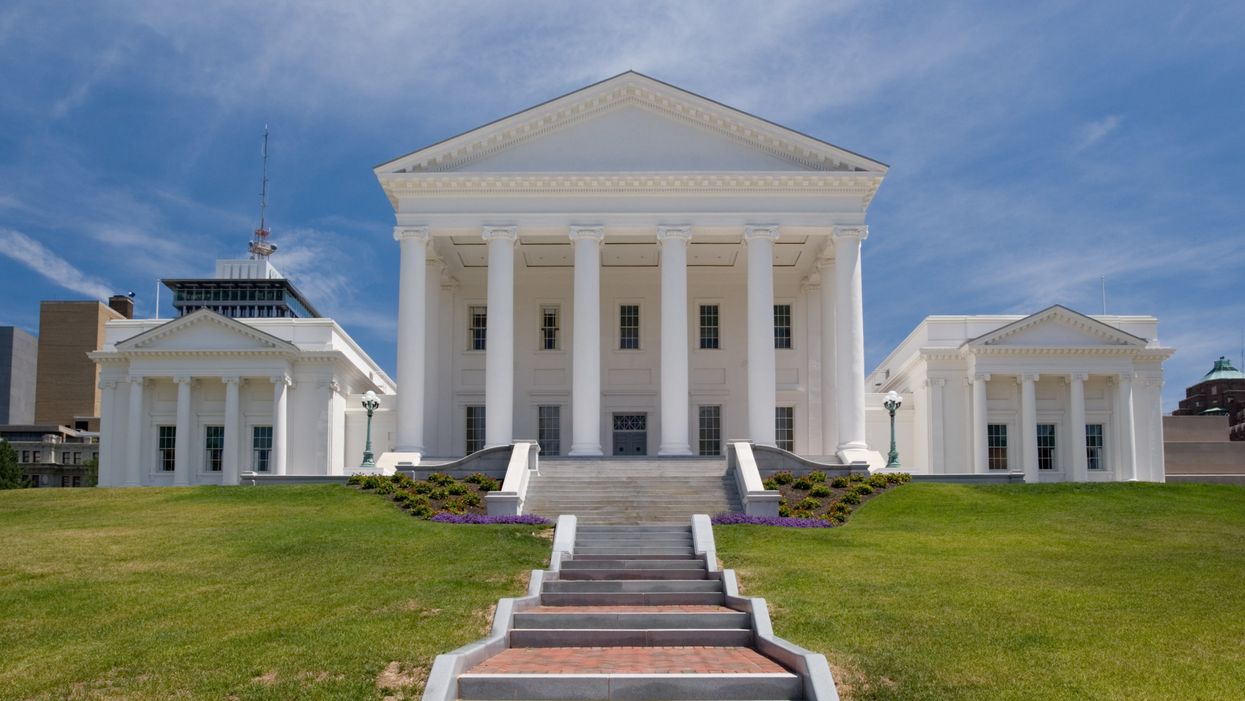Rush is a professor of politics and law and director of the center for international education at Washington and Lee University.
Enactment of the Voting Rights Act in 1965 remains a celebrated landmark in American history. It's time to celebrate the law's potential anew by making some big changes in how state legislatures are elected. My home state of Virginia illustrates the merits of doing so.
First, a quick refresher course: The law enacted 55 years ago put an end to literacy tests, poll taxes and a host of other discriminatory practices that had kept minority voters from gaining access to the polls. To protect them from being gerrymandered out of power, Section 2 forbade discriminatory redistricting or other practices that would deny minority voters an equal opportunity "to participate in the political process and to elect representatives of their choice."
Section 2 has generally been implemented through what can best be described as the "affirmative gerrymandering" of election districts to include enough minority voters that their candidate of choice would win.
On the one hand, this represents nothing less than retributive justice: Districts across the country had been drawn for decades to make sure minority voters could not elect their preferred candidates, so redrawing them to enhance minority representation was a way to redress the impact of that discrimination. On the other hand, in assuring the election of more minority legislators, the country — courts, legislators, litigators and experts — took away perhaps the greatest promise of the Voting Rights Act: to give minority voters a choice on Election Day. This was because the switch worked only because newly gerrymandered, winner-take-all elections ensured minority representation opportunities.
Granted, there is nothing unique about winner-take-all elections. The overwhelming majority of state legislative districts use winner-take-all elections. Of the 7,383 state legislative districts drawn after the 2010 census, 86 percent are represented by a single person. While states must use such winner-take-all elections for Congress, they are free to choose any sort of system for their legislatures. And four — Arizona, New Jersey, South Dakota and Washington — elect all their legislators to seats in multimember districts.
It is well-understood why winner-take-all elections give voters little choice, make incumbents nearly unbeatable and devastate the quality of elections. And so, the Voting Rights Act's importance and impact are being muted because our electoral system now denies too many of us the "choice" the law promised.
What has happened in Richmond, the capital of the nation's 12th largest (and fast-growing) state, demonstrates this clearly: The election of minority members of the General Assembly is essentially guaranteed while the quality of elections in their districts is undermined.
Contests for the Legislature are rarely competitive. In fact, candidates ran unopposed in 66 of the 160 Senate elections and 443 of the 900 House of Delegates contests from 2001 through 2017. Put differently, 41 percent of Virginians had no reason to vote for state senator and 51 percent could have steered clear of a state representative contest because the results were foregone conclusions. As bad as this data may appear, measures of electoral competition and democratic health demonstrate that voters in places the Voting Rights Act was written to help are suffering an even worse democratic deficit.
In the past two decades, five of the 40 Senate districts and 12 of the 100 House districts have been drawn to promote minority representation, according to Virginia's Division of Legislative Services. Yet, Senate districts drawn to comply with the VRA have been almost twice as likely as those in the rest of the state to go uncontested — and House districts 65 percent more likely.
These districts also have significantly lower numbers of registered voters — more than 5,000 fewer than the remaining House districts and some 11,000 fewer than the other Senate districts. Total votes cast and the share of eligible voters who turn out in the general election are much lower in the VRA districts. In the nine legislative elections through 2017, turnout across all state legislative elections averaged 47.6 percent — but in VRA districts the turnout and raw numbers of votes cast were markedly less.
That means winning in VRA districts (when there's been a contest) has required fewer votes than in other districts — 1,700 less on average for a House seat and 14,900 less for a Senate seat, when you compare all the results for the two categories of districts for the past two decades. At the same time, the winners of VRA seats in both chambers have taken an average of 88 percent of the vote — at least 10 points better than the winners in other districts.
All these numbers add up to a story of electoral devastation in the Virginia districts drawn to benefit minority voters. They get represented by members of minority groups, but the voters have had very little choice in the process. And, remember, electing "representatives of their choice" was the essential goal of Section 2 of the landmark voting rights law.
The winner-take-all electoral system is to blame for the state of Virginia elections. But, the solution to this dire situation is obvious — and at hand.
Extensive research indicates that a simple change to multimember General Assembly districts would invigorate electoral competition and increase turnout while also enhancing minority representational opportunities. Critics suggest that voters would find such a system confusing. Nonsense.
In fact, Gov. Ralph Northam just signed into law two bills that enables local electoral boards, the general registrar and city council members to use ranked-choice voting and establishes ranked-choice voting for board of supervisors elections in counties operating under the county manager plan of government.
If the Commonwealth can do this at the local level, it can easily and, therefore, should switch to a system of multimember General Assembly districts represented by people chosen in elections with ranked-choice voting. This would transform the quality of elections for all voters while fulfilling a long-overlooked mandate of the Voting Rights Act. It is only a matter of political will.




















